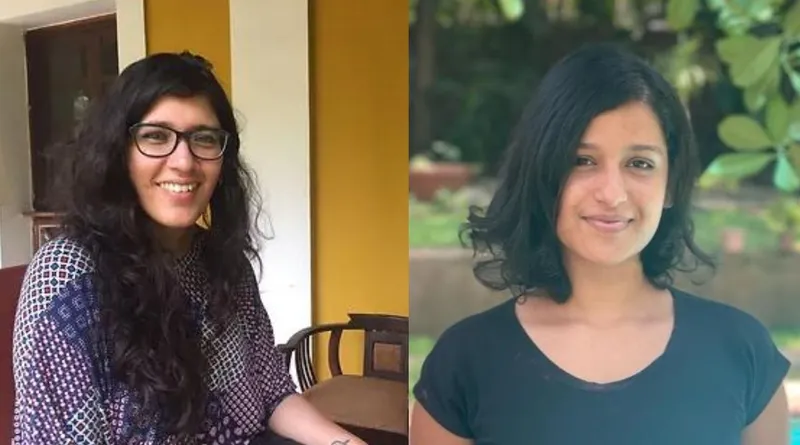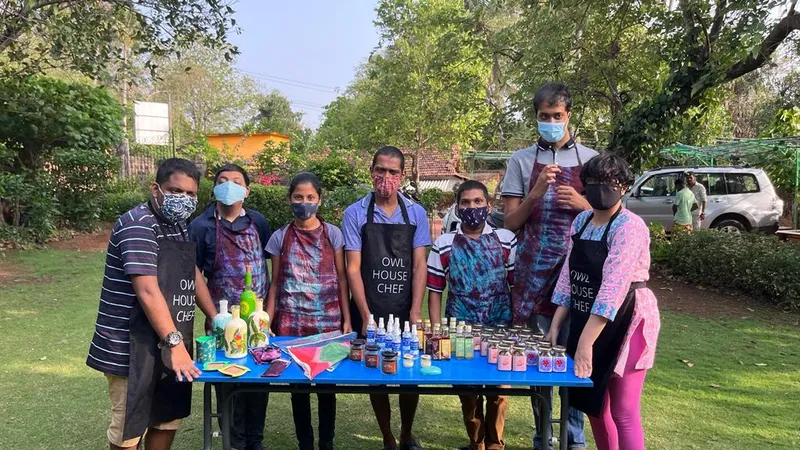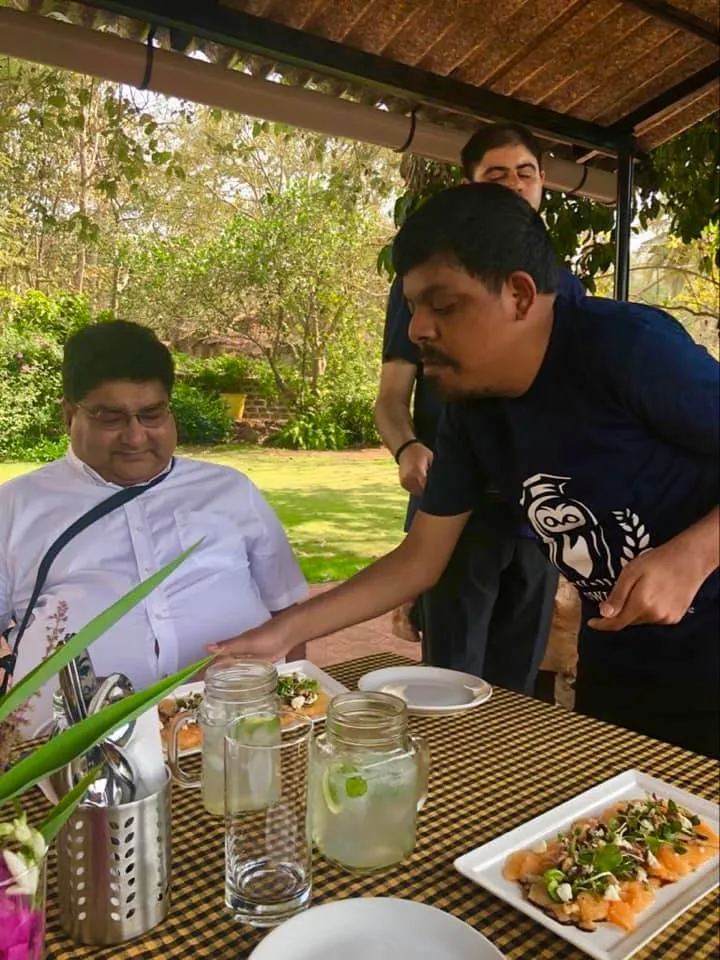Goa-based The Owl House is helping neurodivergent individuals learn life skills
The Owl House, a community service initiative, provides skill support to neurodivergent individuals through various programmes, such as production and store management, cafe service, and gardening.
Sharmila Banerji recalls that her daughter initially met all her developmental milestones. However, when she began attending school, her teachers noticed certain differences.
Later she was diagnosed with autism.
Banerji shares that her daughter had occasional meltdowns, struggled with learning and even faced bullying from classmates. In 2002, the family shifted to Goa and a friend introduced Banerji to the Owl House, a community service initiative that provides skill support to neurodivergent individuals.
The Owl House runs various courses that train adults with special needs in professional skills that will help them get employed, such as store management, cafe service, and gardening.
At the centre, her daughter likes managing the store and organising tasks like cleaning, putting things in order etc. Banerji notes that her daughter has become more focused and socially adept. Her communication skills have improved, and she is more aware of the needs of those around her. She also carries herself with confidence and self-assurance.
“Initially, it was difficult for me to come to terms with the fact that my child would not receive the typical education that most children do. However, I am truly grateful for the Owl House. It has provided a safe space where my daughter can learn and develop the skills she is good at, which has boosted her confidence. Additionally, she also has the opportunity to earn a little income. But most importantly, she is happy,” Banerji tells SocialStory.
Building blocks of life

Priyadarshani Sule (left) and Renuka Figueiredo (right)
Founded by Priyadarshani Sule and Renuka Figueiredo in 2018, the centre's main goal is to empower neurodivergent individuals by helping them find purpose and, where possible, earn an income. Much of their work involves skill-building for neurodiverse adults.
Figueiredo shares that the centre first started as a therapy centre. The founders planned it like a multi-specialty centre where people can come in for speech therapy, special education, and behavioural therapy.
After operating in this space for two years, the pandemic hit. The founders took a step back and changed their approach. They realised that they were doing a lot and catering to people ranging from age three to age 40.
“The thing with therapy is that you often end up seeing people in a very discontinuous way—maybe once a week or once every two weeks. Beyond a certain level, you’re not truly able to make a fundamental change in someone’s life and their life outcomes. This is not to say that therapy is not relevant. It is a crucial stepping stone. But it can only take you a certain way and then you need other services and other types of support to become a fully participating member of the community,” she adds.
She shares that many people with autism and other neurodiverse conditions would finish school at 18 years of age and then have nowhere to go. This led them to pivot and transform Owl House into a skill development centre.
“Our goal is to show that we genuinely believe neurodiverse individuals can achieve anything with the right kind of guidance and assistance,” she says.
She explains that the centre offers three main programme— production of small items, cafe management, and gardening.
They run a fully functioning cafe at the Owl House that has employed about seven students, either in the kitchen or front of the house. The cafe started last year, and its goal is to collaborate with local boutique hotels and restaurants to help employ their students.
They also have a production and store management programme where they create various items like bracelets, necklaces, and seasonal products, such as Diwali jewellery and hampers, based on what is in demand at the time.
“We aim to create products that people genuinely want to buy because they like them—because they’re good-looking and of great quality,” she adds.
In the store, students learn to interact with customers and handle other operations. They also attend different pop-up events in Goa to sell their products. The third programme is focused on gardening and food cultivation. Figueiredo however notes that this program is in its nascent stage.

The Owl House runs various courses that train adults with special needs in professional skills
Figueiredo further explains that all of these skills are very much related to the economy and community in Goa.
“Because it's a hospitality-based, tourism-driven state, we have a lot of cafés springing up everywhere, which could potentially employ our students. In Goa, the concept of a small kirana store is quite popular. You’ll see these small pop-up stores everywhere. These are attainable and interesting jobs for such people. Then, with gardening, we intend to assist people who are unable to manage their gardens. It's also a beautiful way to engage with the community,” says Figueiredo.
She explains that in the first two months, they assess the level of functioning of an individual, evaluating them on motor skills, communication and language skills, social interaction skills etc. Then they make a plan taking all of this into account.
"I like to think of the Owl House as a college because I believe it takes that long to identify what someone likes and then teach it to them,” she adds.
They also plan movie sessions in the centre where they make the individuals wait in line, buy tickets, and go for the movie.
The centre works with individuals having conditions like autism, ADHD, specific learning disabilities, Down syndrome and others. It charges about Rs 100 for a group session and Rs 200 for an individual session. However, those families who can't afford to pay take the programmes for free.
The organisation is supported by donors, the names of which have not been disclosed by the centre.
The beginning
Figueiredo recalls that her exposure to intellectual disability happened quite early on. During her holy communion as a child, there was an autistic boy no one wanted to pair with. “I didn't see it as a formative experience at the time,” she says continuing, “But I walked with him, and we stayed friends. We're still friends today, which is nice.”
Figueiredo is the Director of the Owl House. Over the years the duo worked together and their common interest and passion boosted their bond.
“I still think of us as a baby organisation. We're just starting to take our first few steps in terms of really creating some impact. But I am very excited about where we're going to go with this,” she adds.
Challenges and the road ahead
Figueiredo believes that people tend to bracket disabilities together. However, with physical disabilities, there are clear, tangible constraints—you know what can and can't be done. Comprehension isn't usually an issue. However, she believes that a major challenge with autism is language and communication.
“I've had students who can name the capital cities of any country or recite a poem or article they read without even practicing it. But when they need a glass of water, they can't ask their mother for it,” she adds.

They run a fully functioning cafe at the Owl House that has employed about seven students
Talking about their journey, Figueiredo shares that retaining staff has been a constant struggle for the centre.
“These jobs tend to be emotionally impactful because they involve a lot of giving to others. It’s a difficult job, and emotionally, it can be quite challenging to do daily. One of our bigger challenges is figuring out how to find a balance for people who choose to dedicate their lives to this space,” she adds.
However, she notes that their journey has been very fulfilling, and the community has always been extremely supportive.
This year, the centre also launched a fellowship programme for neurotypical adults who wish to work in this space. They selected 12 fellows who underwent intensive training and are now placed at eight schools, centres, and residential facilities working with neurodivergent individuals.
Edited by Affirunisa Kankudti








